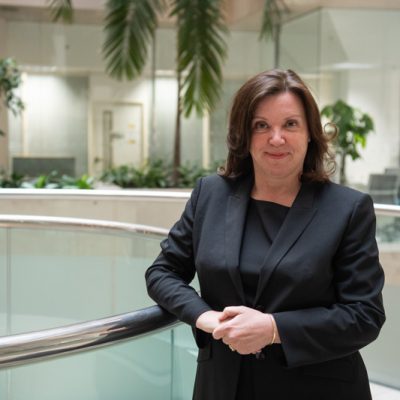The government must increase school investment in real-terms, link pupil premium funding to inflation and invest further in Covid catch-up support, the children’s commissioner for England has said.
Dame Rachel de Souza has also called for a “voluntary third session” in the school day for catch-up support and activities, alongside moves to speed up implementation of tutoring support and work to increase the capacity of schools to provide “pastoral interventions”.
The children’s commissioner, formerly the chief executive of the Inspiration Trust academy chain, was responding to her “Big Ask” consultation, which surveyed more than half a million children across the country.
The consultation found that although 56 per cent of nine to 17-year-olds were happy with life at school or college, 16 per cent were not. Children in more deprived areas or attending schools rated ‘inadequate’ were more likely to be unhappy.
‘Comprehensive’ catch-up package needed
The policy paper includes a call for a “comprehensive three-year catch-up package”, building on investment “already committed”.
The government has faced criticism over its education recovery programme after initially allocating less than a tenth of the £15 billion called-for by adviser Sir Kevan Collins, who resigned in June.
de Souza has not said how much should be allocated for catch-up, but called for the “greatest investment possible”.

As well as boosting catch-up spending, the government must also invest in schools “in real terms”, and link the pupil premium to the rate of inflation “so that its real value is not eroded”.
Retention incentive payments for teachers in “challenging” areas should also be doubled to £2,000 a year and extended to more subjects, but re-focused on the poorest 20 to 25 per cent of schools, rather than just specific local authority areas.
The government should also permit “a small minority of pupils to repeat a year – for example if they had lost significant in person learning time due to shielding and were in Key Stage 4”.
‘Voluntary third session’ in the school day
The paper also calls for a “voluntary third session” in the school day for catch-up support and activities.
Extending the school day was one of the proposals worked-on by Collins, but the government has so far only committed to a review.
A third session would provide an opportunity for academic catch-up, as well as a chance “to catch up on missed social, sporting and cultural experiences”.
She said an expanded out-of-school offer “should be the norm, especially in disadvantaged areas”.
However, Schools Week understands the proposal would not involve schools being forced to run such activities, and their staff would not be forced to work extra hours for free.
The paper also called for further funding for holiday activities and breakfast clubs.
Speed up tutoring offer and fund for three years
Ministers should also prioritise “faster” implementation of tutoring support, and consider a “direct grant in lieu” for schools where that is not possible.
It follows reports of problems with the second year of the National Tutoring Programme.
de Souza called for a commitment to fund tutoring for the next three years, and for take-up of tutoring to be incentivised with an “expectation that children in need and those with an EHCP will undertake at least one cycle of tutoring”.
Boost capacity for pastoral interventions
de Souza warned of the need for an “urgent focus on improved services to children struggling with attendance, emotional problems, and other common consequences of the pandemic”.
She said ministers should prioritise “bolstering and increasing” the capacity of schools to provide pastoral interventions to children who need them, and faster roll out mental health support.
Disadvantaged children should also be prioritised in school admissions, expanding the current priority list to include all children in need and those in receipt of the pupil premium.
Finally, de Souza advocated a “cradle-to-career” approach to securing “viable pathways for all school leavers”.
This would include expanding the 16 to 19 tuition fund for a further two years, funding to extend 16 to 19 courses for an additional year “where there is demand”, and funding post-16 places in alternative provision.
The government should also fund a new 16 to 19 “student premium”, at a cost of £740 million over three years.
Zahawi acknowledges ‘concerns’
In response to the report, education secretary Nadhim Zahawi insisted he was “encouraged to see most children and young people are happy, resilient and ambitious”, but acknowledged there were “concerns too and we must address them”.
“We know that the pandemic hit young people hard, which is why we have launched a tutoring revolution to make sure they catch up and bolstered mental health support in schools.
“As we drive to level up opportunities across the country, we will continue prioritising young people’s wellbeing alongside academic success.”















Your thoughts